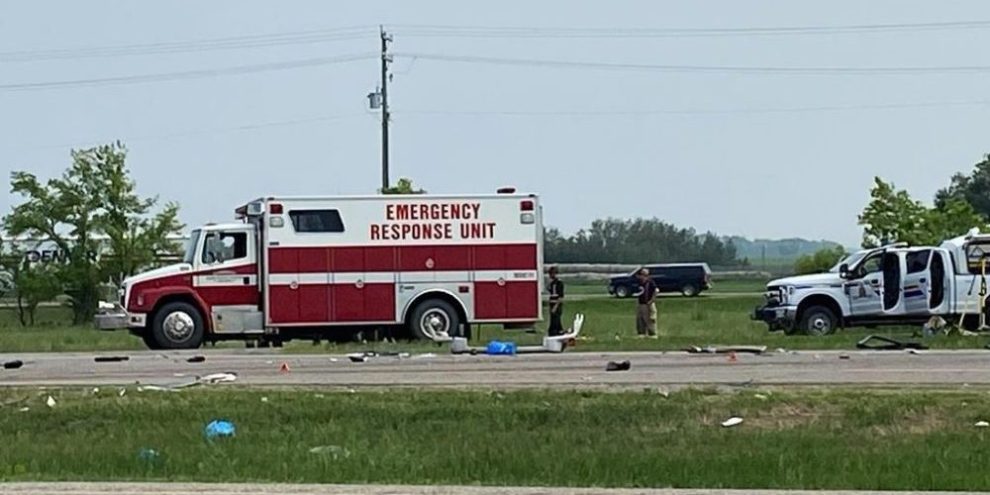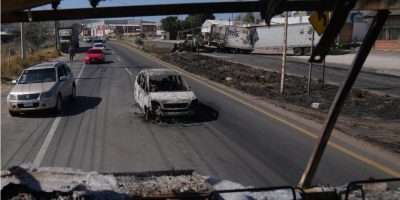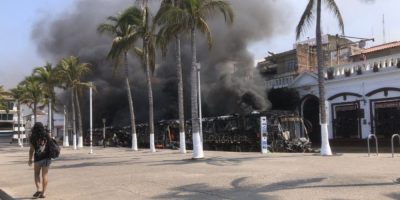
Chuck Chiang, The Canadian Press
The deadly crash in Manitoba between a bus full of seniors and a semi has brought renewed attention on the safety of numerous at−grade intersections on Canadian highways.
BC Trucking Association CEO Dave Earle says most drivers in urban areas where highway intersections have overpasses or traffic lights have no idea about the prevalence of at−grade intersections, in which two routes cross at the same elevation, and that they operate without lights even on major arteries such as the Trans−Canada Highway.
Earle says while it isn’t always possible, easy or economically viable to build fully grade−separated interchanges, it would be much safer for all drivers.
Police say 15 people were killed and 10 others were hurt in the crash west of Winnipeg at the Trans−Canada Highway’s intersection with Highway 5.
The Trans−Canada Highway is almost completely a four−lane route in Alberta, Saskatchewan and Manitoba, but a large number of its intersections outside of cities are at−grade and controlled with stop signs and yield signs.
Earle says there are also portions of other major four−lane highways, such as Alberta’s Highway 2 south of Calgary, that have intersections at the same level as traffic from crossing roads.
He says while the trucking association would like to see more separated interchanges built throughout Canada, he understands that many such projects aren’t economically or physically feasible depending on the location.
"Whenever possible, we advocate for grade separation," Earle says. "This includes rail crossings, this includes major highway intersections. But the vast, vast majority of intersections right across the continent are at−grade."
He says one portion of the Trans−Canada Highway through the Fraser Valley still has an at−grade intersection with a Canadian Pacific rail line after the 2021 atmospheric river flooding knocked out the original grade separation.
"Sometimes it’s really difficult to do (a grade separation) physically, even if you have the will and the money," he says. "As much as we all would like to have an uninterrupted and safe commute, there’s always the risk … and when mistakes happen, the consequences can be dire."
banner image: The Canadian Press





